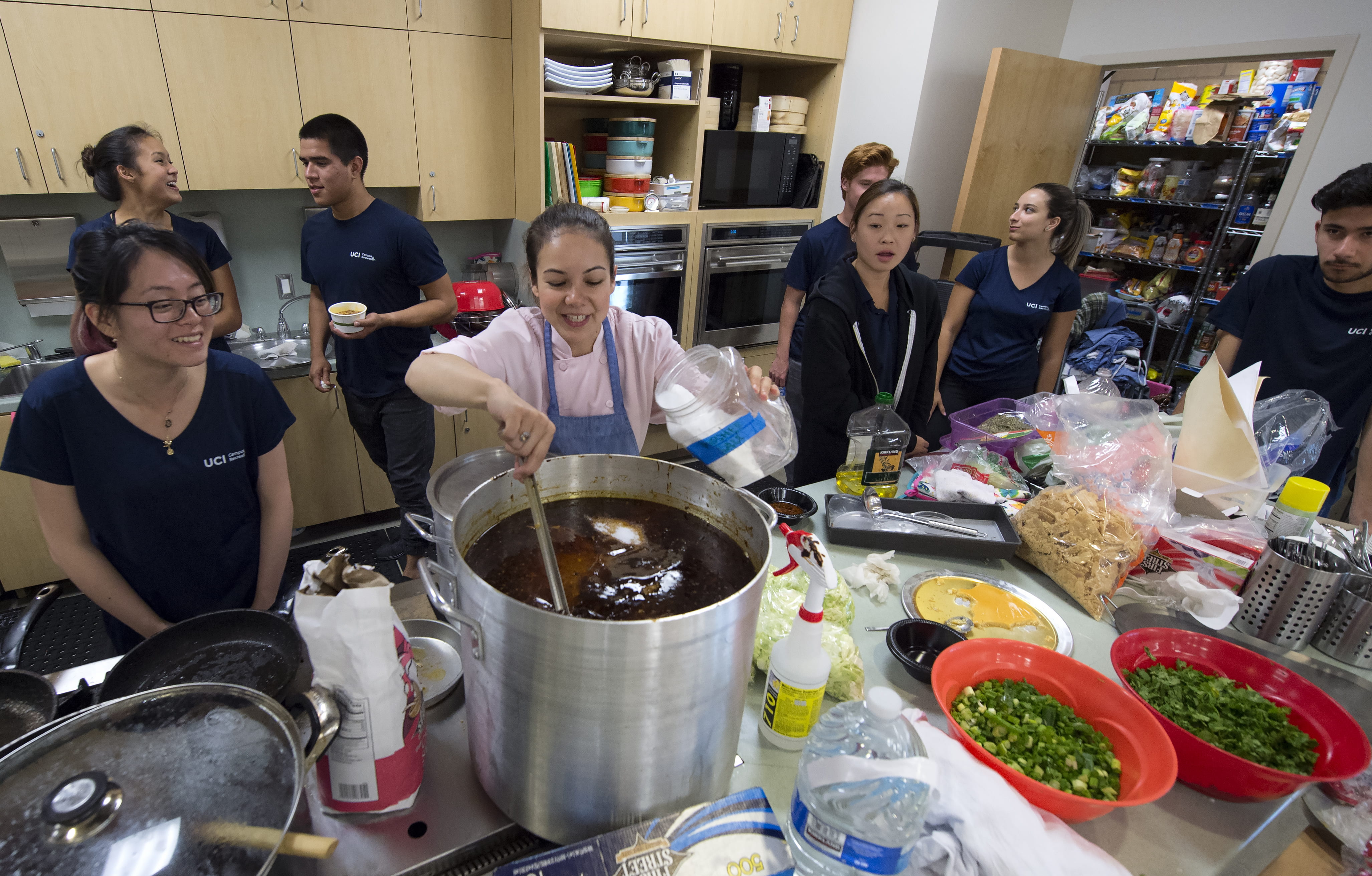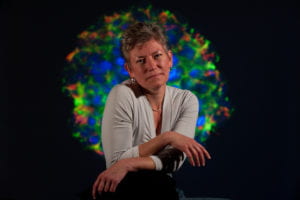8 faculty-led projects funded under UCI Confronting Extremism initiative
Areas of focus are science denialism, our common humanity and critical thinking

Irvine, Calif., March 13, 2018 — From a massive open online course countering science skepticism to intimate culinary workshops fostering cultural understanding, eight faculty-led University of California, Irvine projects will take innovative approaches to some of society’s most intractable issues.
Under the new Provost Initiative on Understanding and Engaging With Extremism, participants will receive an average of $20,000 to fund their projects. The awards are part of a broader UCI Confronting Extremism initiative launched last October to support social justice efforts in the face of extremist narratives, advance scientific inquiry and evidence-based practices, and encourage inclusive communities aligned with campus values.
“UCI’s faculty are well-equipped to address the urgent and complicated social, political and economic challenges facing the world today,” said Enrique Lavernia, UCI provost and executive vice chancellor. “When there are no simple solutions, our renowned faculty employ thoughtful approaches – informed by cutting-edge scholarship – to raising awareness and promoting reasoned discussion.”
The projects will focus on three priority areas: science denialism, our common humanity and critical thinking. They are:

Daniel A. Anderson / UCI
Projects examining science denialism
- With “Interrogating the Character and Persistence of Science Denialism: The Case of the Anti-Vaccination Movement,” David Snow, Distinguished Professor of sociology, and Colin Bernatzky, a doctoral student and Jack and Suzanne Peltason Fellow, will explore science skepticism as manifested by the anti-vaccine movement in Southern California. The goal is to help public health professionals better engage with and respond to the logic and concerns of skeptical citizens, especially parents.
- For “Relativism and Skepticism: Massive Open Online Course,” philosophy professor Duncan Pritchard will create a MOOC that challenges the denial of science, as related to subjective and objective truths encountered in public life. It will lead to outreach work within local schools and, it is hoped, beyond.
- Through “Understanding and Confronting Science Denial,” Aileen Anderson, professor of physical medicine & rehabilitation and director of the Sue & Bill Gross Stem Cell Research Center, will develop programs to educate the academic community about the nature of controversies in stem cell research and evidence-based science and also to enhance student and faculty skills in communicating about stem cell research in the face of denialism.
Projects emphasizing our common humanity
- Led by Bill Maurer, dean of the School of Social Sciences and professor of anthropology and law, and Paul Dourish, Chancellor’s Professor of informatics, “Digital Extremism: Understanding and Confronting the Alt-Right’s Digital Toolkit” will feature public dialogues, workshops and seminars for students and faculty to examine how digital media is manipulated, discuss the digital tools used by the alt-right and explore ways to reimagine digital civics.
- For “Civic Education in Polarized Times,” Sara Goodman, associate professor of political science, will conduct original experiments to assess the effects of debate skills training, media literacy and empathy building on novel measures of attitudes toward ideologically different people and ethnic minorities.
- Through “Bridging the Gap Between Medical Education and Nursing Education, and the LGBT+ Community,” Ellena Peterson, professor of pathology, and Terrance Mayes, associate vice chancellor for diversity and inclusion, will advance interactive training for medical and nursing students to enhance cultural competency in addressing an underserved community in Orange County.
- In “Challenging the Liberal Order: Populist Politics From the Nazis to Today,” David Tse-Chien Pan, professor of German and chair of European languages & studies, will establish a workshop to focus on left- and right-wing movements in Germany and the United States, providing an interdisciplinary discussion and analysis of extremism.
Project promoting critical thinking
- With “The Virtuous Table,” English professor Julia Lupton and history professor Yong Chen will merge the successful Conversation Kitchen format with the general education course What to Eat to explore global virtues and traditions through experiential learning and inclusive excellence. Conversation Kitchenis a unique series of culinary workshops examining the significant influence that food has in defining and shaping cultures. Each free workshop focuses on an area of the world undergoing conflict and transformation.
For more information on these projects, please visit http://inclusion.uci.edu/confronting-extremism/understanding-engaging-extremism.
About UCI Confronting Extremism
The UCI Confronting Extremism initiative connects current campus efforts with new intentions and activities – emphasizing the merits of research, innovative teaching and engaged service to inform inquiry and knowledge bases, practices and values clarification aligned to UCI’s mission in and beyond the 21st century. It also dissects extreme rhetoric, violent acts and related incidents to explore proactive, evidence-based and instructive approaches and actions promoting societal progress.
“Extremism in any guise poses an existential threat to our constitutional rights, our democratic institutions, our multiracial and -cultural society, and our university as an engine of change,” said Douglas Haynes, vice provost for academic equity, diversity and inclusion. “This campus initiative, therefore, purposefully harnesses our research, teaching and service mission to confront extremism and to fortify our campus community, where all expect equity, support diversity, practice inclusion and honor free speech.”
About the University of California, Irvine: Founded in 1965, UCI is the youngest member of the prestigious Association of American Universities. The campus has produced three Nobel laureates and is known for its academic achievement, premier research, innovation and anteater mascot. Led by Chancellor Howard Gillman, UCI has more than 30,000 students and offers 192 degree programs. It’s located in one of the world’s safest and most economically vibrant communities and is Orange County’s second-largest employer, contributing $5 billion annually to the local economy. For more on UCI, visit www.uci.edu.
Media access: Radio programs/stations may, for a fee, use an on-campus ISDN line to interview UCI faculty and experts, subject to availability and university approval. For more UCI news, visit wp.communications.uci.edu. Additional resources for journalists may be found at communications.uci.edu/for-journalists.